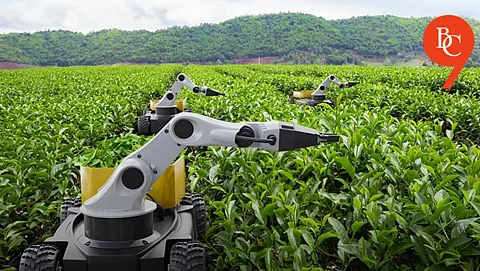

Pune has emerged as the epicenter of India’s agricultural transformation, leading the charge in integrating artificial intelligence (AI) into farming practices. As Maharashtra rolls out the ambitious MahaAgri-AI Policy 2025–29, Pune’s blend of innovation, research, and farmer empowerment is setting a national benchmark for AI agriculture; a field that promises to redefine how India grows its food.
AI agriculture refers to the use of artificial intelligence and related digital technologies to optimize every stage of farming. This includes deploying machine learning, computer vision, robotics, drones, and IoT (Internet of Things) devices to automate, analyze, and enhance agricultural processes. The goal is to make farming more precise, productive, sustainable, and resilient to climate change.
AI analyzes data from sensors, satellites, and drones to recommend the best planting times, irrigation schedules, and fertilizer use, reducing waste and boosting yields.
By processing weather data and historical crop trends, AI can forecast pest outbreaks, disease risks, and market prices, helping farmers make informed decisions.
Robots and autonomous machines handle tasks like sowing, weeding, and harvesting, saving labor and increasing efficiency.
AI-powered apps and platforms offer real-time advice to farmers on crop health, soil conditions, and market trends, often in local languages.
Pune’s leadership in AI agriculture is evident on multiple fronts. The city recently hosted India’s first international agriculture hackathon, bringing together technologists, farmers, and global partners to develop innovative solutions for pressing farm challenges. The event, backed by the Maharashtra government and international agencies, focused on harnessing AI, drones, and data analytics to empower over 100,000 farmers with technology-driven insights.
This collaborative spirit is also reflected in local initiatives, such as the Agriculture Development Trust in Baramati, which, with support from Microsoft and the University of Oxford, is piloting AI solutions for sugarcane farmers. The success of these projects is expected to scale across Maharashtra and beyond, demonstrating how AI can directly improve yields, resource efficiency, and farmer incomes.
Maharashtra’s MahaAgri-AI Policy 2025–29, with an initial investment of ₹500 crore, aims to integrate AI and digital tools across the state’s agricultural value chain. The policy supports projects like AgriStack, Maha-Agritech, Mahavedh, and Digital Farming Schools, all designed to bring real-time data, weather forecasts, and market intelligence to farmers’ fingertips. Automated weather stations and a unified agricultural data exchange (A-DeX) are being rolled out to ensure hyper-local, actionable information for every village.
